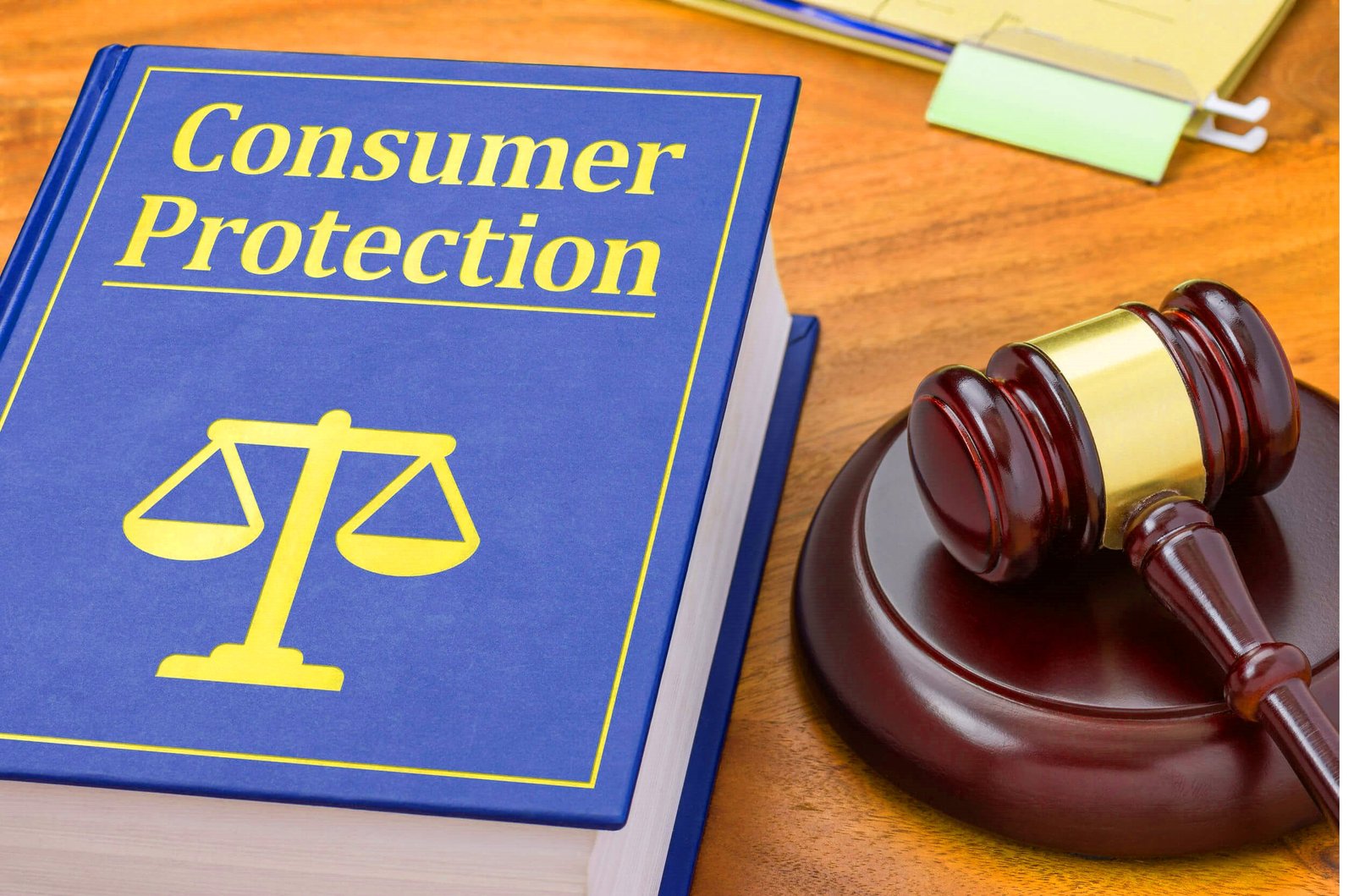Laws and Resources for Consumer Protection

In the dynamic and interconnected world of commerce, the assurance of fair and ethical trade practices is paramount. Laws and Resources for Consumer Protection, encapsulated in a web of laws and resources, stands as the guardian of individual rights in the marketplace. This introductory exploration delves into the multifaceted realm of consumer protection, deciphering its historical evolution, dissecting major legislations, examining the roles of government agencies, and shedding light on the legal remedies available to consumers.
As we embark on this journey, it becomes evident that the landscape of consumer protection is not only intricate but also crucial for maintaining trust and transparency between buyers and sellers. Join us on this informative odyssey as we unravel the laws and resources that underpin the foundation of a secure and equitable marketplace.
Definition of Consumer Protection
Consumer protection, at its core, revolves around ensuring that buyers have access to fair trade practices and are shielded from fraudulent or deceptive activities. This encompasses a wide range of legal frameworks and regulations aimed at promoting transparency and accountability in business transactions.
Importance of Consumer Protection Laws
The significance of consumer protection laws cannot be overstated. These laws not only empower individuals but also contribute to the overall stability and trustworthiness of the marketplace. A robust consumer protection framework fosters a healthy business environment where both buyers and sellers can engage with confidence.
Historical Overview
Evolution of Consumer Protection
The journey of consumer protection laws dates back centuries, evolving from basic market regulations to comprehensive legal frameworks. Understanding this evolution provides insights into the current landscape and the motivations behind various legislations.
Milestones in Consumer Rights
From the ancient Roman market regulations to the consumer rights movements of the 20th century, there have been pivotal moments that shaped the landscape of consumer protection. These milestones highlight the ongoing struggle for fair and ethical trade practices.
Major Consumer Protection Laws
Fair Trade Practices
Examining the core principles of fair trade practices and how they form the foundation of many consumer protection laws. We’ll explore the concepts of transparency, honesty, and competition in the business realm.
Consumer Product Safety Act
A deep dive into the Consumer Product Safety Act, understanding its role in regulating product safety standards and protecting consumers from potentially harmful goods.
Magnuson-Moss Warranty Act
Unpacking the Magnuson-Moss Warranty Act, focusing on its implications for consumer warranties and the rights it grants to buyers.
Government Agencies
Federal Trade Commission (FTC)
An exploration of the FTC’s pivotal role in enforcing consumer protection laws, investigating deceptive business practices, and promoting fair competition.
Consumer Financial Protection Bureau (CFPB)
Understanding the CFPB’s mandate to protect consumers in the financial sector, including its role in regulating banking and lending practices.
State-level Agencies
Highlighting the importance of state-level agencies in complementing federal efforts, with examples of how regional authorities contribute to consumer protection.
Legal Remedies for Consumers
Small Claims Court
An overview of the small claims court as an accessible legal recourse for consumers seeking resolution for minor disputes.
Class Action Lawsuits
Exploring the concept of class action lawsuits, their significance in consumer protection, and how they empower individuals to address collective grievances.

Alternative Dispute Resolution
Examining alternative dispute resolution mechanisms, such as arbitration and mediation, as efficient means for resolving consumer disputes outside traditional court settings.
Read More: Financial Protection for Seniors Under Elder Law
International Perspectives
Consumer Protection on a Global Scale
Considering consumer protection from a global standpoint, examining how international collaborations and agreements impact the rights and safety of consumers worldwide.
International Organizations’ Role
Highlighting the contributions of international organizations in shaping a unified approach to consumer protection and fostering cooperation among nations.
Emerging Trends
Digital Consumer Protection
Addressing the challenges and opportunities in protecting consumers in the digital age, focusing on issues like online fraud, data privacy, and e-commerce regulations.
Privacy Concerns
Discussing the evolving landscape of privacy concerns and the role of consumer protection laws in safeguarding personal information in an increasingly interconnected world.
E-commerce Regulations
Exploring the need for specialized regulations in the realm of e-commerce, considering the unique challenges posed by online transactions.
Consumer Education
Importance of Consumer Awareness
Stressing the significance of consumer education in empowering individuals to make informed choices and protect themselves in the marketplace.
Educational Resources
Identifying available resources and platforms that enhance consumer awareness, providing valuable information about rights, responsibilities, and potential risks.
Challenges in Consumer Protection
Enforcement Issues
Analyzing the challenges in enforcing consumer protection laws, including issues related to jurisdiction, resource constraints, and the adaptability of regulations.
Keeping Pace with Technological Advances
Exploring how rapid technological advancements pose challenges in maintaining effective consumer protection and strategies to address these challenges.
The Role of Businesses
Corporate Social Responsibility
Examining the role of businesses in upholding consumer rights through ethical practices, corporate social responsibility, and sustainable business models.
Ethical Business Practices
Highlighting the impact of ethical business practices on consumer trust, brand reputation, and long-term success.
Real-life Cases
Notable Examples of Consumer Protection Cases
Illustrating real-life examples of landmark consumer protection cases and their implications on shaping and amending legislation.
Impact on Legislation
Examining how real-life cases influence the creation and modification of consumer protection laws showcasing the dynamic relationship between legal precedents and statutory evolution.
Future Outlook
Anticipated Changes in Consumer Protection
Speculating on the future landscape of consumer protection, considering potential changes in regulations, enforcement mechanisms, and emerging issues.
Technological Solutions
Exploring the role of technology in enhancing consumer protection, including innovations like blockchain, AI, and digital verification methods.
Read More: How to Deal with Global Legal Issues in International Law
Conclusion
In conclusion, the intricate web of laws and resources for consumer protection serves as a vital backbone for a fair and transparent marketplace. From historical milestones to modern challenges, this comprehensive guide has navigated through the evolution of consumer protection, major legislations, government agencies, legal remedies, international perspectives, emerging trends, and the significant role businesses play in this ecosystem. As consumers become increasingly interconnected and markets evolve, the importance of a robust consumer protection framework cannot be overstated.
It not only empowers individuals but also fosters trust and integrity in commerce. In the face of emerging challenges, the collaboration between legal frameworks, technological innovations, and ethical business practices becomes paramount for a future where consumers can confidently engage in transactions, knowing their rights are safeguarded. The journey toward consumer protection is ongoing, and as we move forward, staying attuned to the evolving landscape will be crucial in shaping a marketplace that truly prioritizes the interests and well-being of its consumers.
FAQs(Laws and Resources for Consumer Protection)
What is the primary purpose of consumer protection laws?
Consumer protection laws aim to safeguard the rights and interests of buyers in the marketplace, ensuring fair trade practices and protection from deceptive activities.
How do international organizations contribute to global consumer protection?
International organizations play a crucial role in fostering a unified approach to consumer protection, promoting cooperation among nations and shaping global standards.
What legal remedies do consumers have for resolving disputes?
Consumers can explore various legal remedies, including small claims court, class action lawsuits, and alternative dispute resolution methods like arbitration and mediation.
How do businesses contribute to consumer protection through corporate social responsibility?
Businesses uphold consumer rights through ethical practices, corporate social responsibility initiatives, and the adoption of sustainable business models.
What are the emerging trends in digital consumer protection?
Digital consumer protection trends include addressing online fraud, managing data privacy concerns, and developing regulations specific to the challenges posed by e-commerce.











